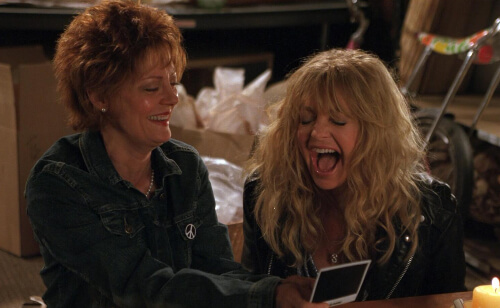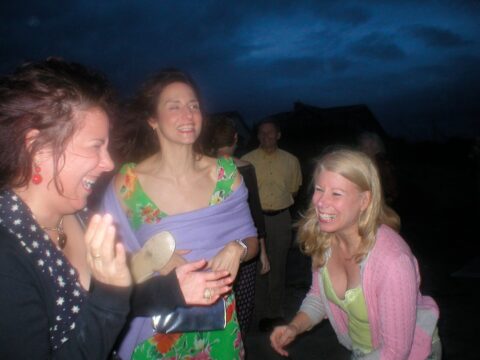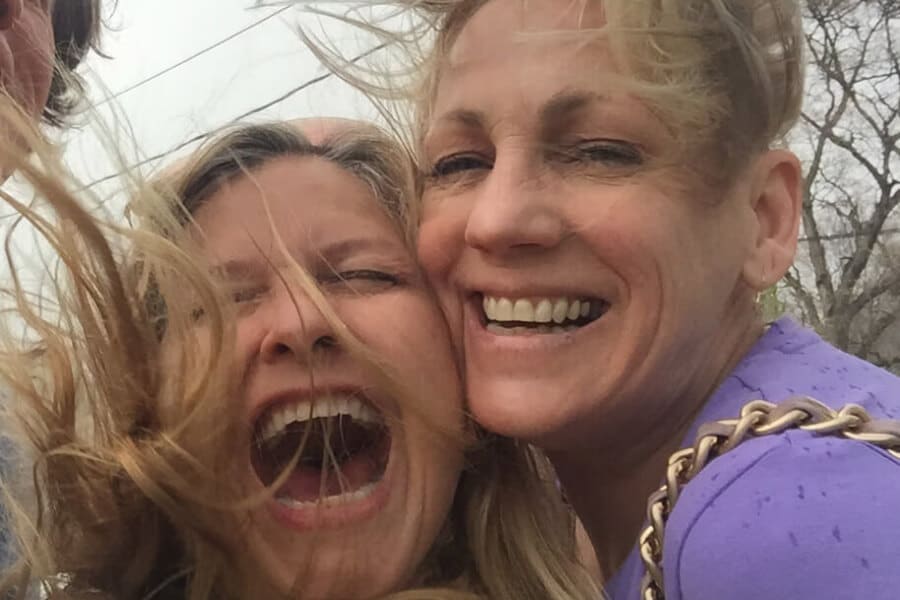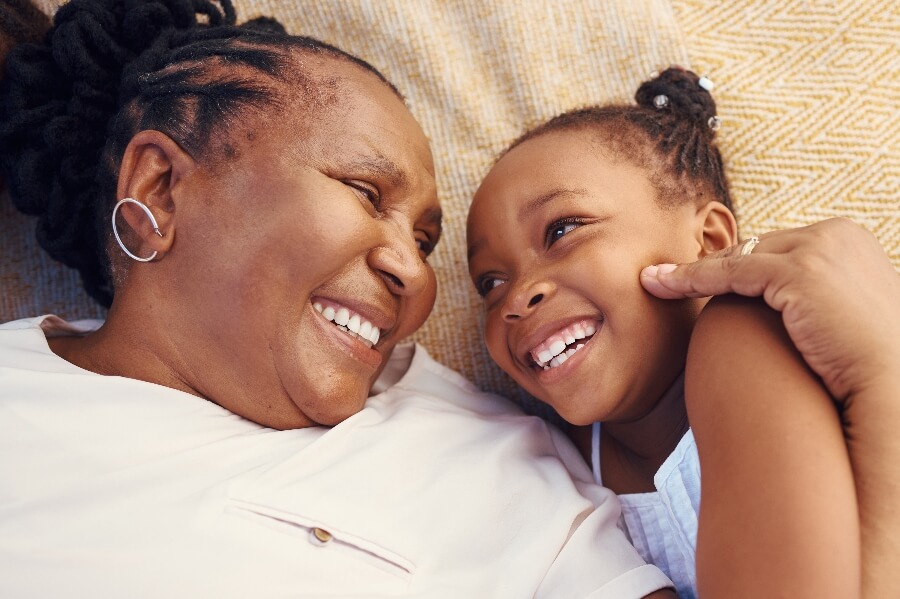This report is excerpted from Suzanne Braun Levine’s You Gotta Have Girlfriends: A Post-Fifty Posse Is Good For Your Health published by Open Road Media.
The best thing a man can do for his health is to be married to a woman. One of the best things a woman can do for her health is to nurture her relationships with her girlfriends, especially after the age of fifty. The longer we live, the more important our friends become. We call them our “chosen family” and in times of need they are the most likely to be at the door, on the phone, or in the waiting room.
Without the kind of human contact and intellectual stimulation we take for granted earlier in our lives, we are likely to literally fade away physically, psychologically, and socially. The failure to maintain quality relationships with others, according to Dr. David Spiegel, a Stanford professor of psychiatry, is as dangerous to our physical health as smoking.
Not only do our girlfriends keep us physically healthy, but their support can also make us well when we are sick. A study of breast cancer patients by researchers at Ohio State University’s Comprehensive Cancer Center found that those who were in a supervised support group were 56 percent less likely to die than those who were going it alone. In fact, the stress-reducing influence of their company is thought to contribute to women’s longer life expectancy than men.
Middle-Age Girlfriends: The Wind Beneath Your Wings and All That
Friends are just as vital to our psychological and spiritual well-being. They give us courage, confidence, and understanding; we know that no matter what happens as we age, we are not alone. They give us love, patience, acceptance, and a healthy dose of comic relief for the accumulating absurdities of life. And we empower each other to achieve and accomplish well beyond the years of past generations.
Our friendships may not have been as important to us earlier in our lives as they will become now. Back in our thirties and forties, we were frantically balancing the multiple demands on our days, and friends developed out of common interests (parents whose children were friends with your kids) or shared space (workplace colleagues). In our fifties, we open a new chapter in our lives, and we need to nurture those important relationships.
Without a circle of trust, we will have a very hard time turning the page. For many of us, it is the most exciting, optimistic, and fulfilling stage. I often hear from women who are amazed to find that they are happier now than ever before—that despite sagging boobs and drifting memories, this is the best time of their lives.
Great! Another Adolescence…Without All the Sex

Susan Sarandon and Goldie Hawn in The Banger Sisters, a movie about female friendship. We want what they’re having.
To get there, though, we must pass through a period of upheaval as confusing and extended as adolescence. The two have a lot in common: raging hormones, self-doubt, recklessness, tumultuous relationships, and the looming question of what we will do with the rest of our lives. No matter how independent and resourceful we are, meeting this challenge successfully requires teamwork. And courage. “Many think of courage … as a solitary journey,” write Deborah Collins Stephens, Jackie Speier, Michaelene Cristini Risley, and Jan Yanehiro, the friends and co-authors of This Is Not the Life I Ordered. “We believe the journey of courage is best walked with women friends who literally and figuratively ‘en-courage’ us.”
The journey takes us through change and doubt, and the destination is not clear. It is easy to get stuck. That is where our encouraging friends come in. As Ellen Goodman and Patricia O’Brien point out in their book, I Know Just What You Mean: “There are times when a friend provides more than the warm soup of empathy. She becomes a catalyst for change. Over a long life, full of disruptions, stops, and start-ups, friends can be the collaborators, the instigators who make change possible. They are often the ones who urge us to take a leap, who jump with us or help us scramble back up the other side.”
I haven’t interviewed a single woman about the ups and downs of her recent life who hasn’t at some point told me a story that ended with a grateful “I couldn’t have gotten through it without my girlfriends.”
The Friendship Drug
Studies show that when we are doing whatever girlfriends do together, our bodies produce oxytocin, also known as the “cuddle hormone” (because it is released in nursing mothers). Unlike husbands or kids, who are often the cause of anxiety, our friends consistently elicit that warm glow, which feels good and soothes anxiety. A Swedish study even found that people with broad networks of friends were the lowest risk group for dementia.
A Swedish study even found that people with broad networks of friends were the lowest risk group for dementia.
Studies of female primates show the same phenomenon: Hanging out with a small but trusted group of other females reduces damaging spikes in stress hormones, reports New York Times writer Natalie Angier. A circle of trust can, as she puts it, “mop up the cortisol spills that can weaken the immune system,” which in turn can support additional years of good health.
When something goes wrong and you start to panic, it is usually your friends who are able to talk you through it (versus even the most devoted male partner, whose response is to attack a problem as an enemy to be defeated). This is because women respond to danger by gathering in a mutually supportive group, while men show a “fight or flight” surge of adrenaline.
Women are more calm in a crisis because they respond to danger by gathering in a mutually supportive group, while men show a “fight or flight” surge of adrenaline.
It used to be thought that all humans exhibited “fight or flight:” responses, but recent work (by a team of women scientists at UCLA led by Shelley E. Taylor) found that women are wired somewhat differently, so that our reaction to a crisis is more likely to be a more diplomatic, “tend and befriend” approach, which again reduces tension. That conciliatory response may also make women more creative and calm in a crisis, because the “fight or flight” response is produced in the primitive (“reptilian”) part of the brain, which shuts down most rational resources in order to concentrate on physical strength and agility.
A Medical Prescription for Girls’ Nights Out

Joni, Andrea and Mary Ellen: The best! Laughing with friends.
What’s more, no matter how bad a problem is, and no matter how intense the conversation is with a girlfriend, you probably eventually find something to laugh about.
Laughter may be our most precious gift to each other. It is very rare to spend more than a few minutes with a girlfriend when there isn’t a burst of laughter despite whatever else is going on. Gestalt therapist Ilana Rubenfeld calls humor a “martial art” because it cuts a frightening situation down to size. In fact, the act of laughing releases endorphins, those feel-good brain chemicals, which means the physical exercise of a hearty laugh is not unlike an orgasm.
The next time people say (or you say to yourself), “why are you wasting your time having coffee with your girlfriends, when you have so many more important things to do?” tell them they couldn’t be more wrong. Beyond the fun of it all, and the infusion of energy and optimism, those seemingly meaningless get-togethers are crucial to aging well.
So pick up the phone right now and make a date to see a friend or your posse of friends. In my mind, the post-fifty version of “an apple a day” is “nurture your friendships.”





















0 Comments